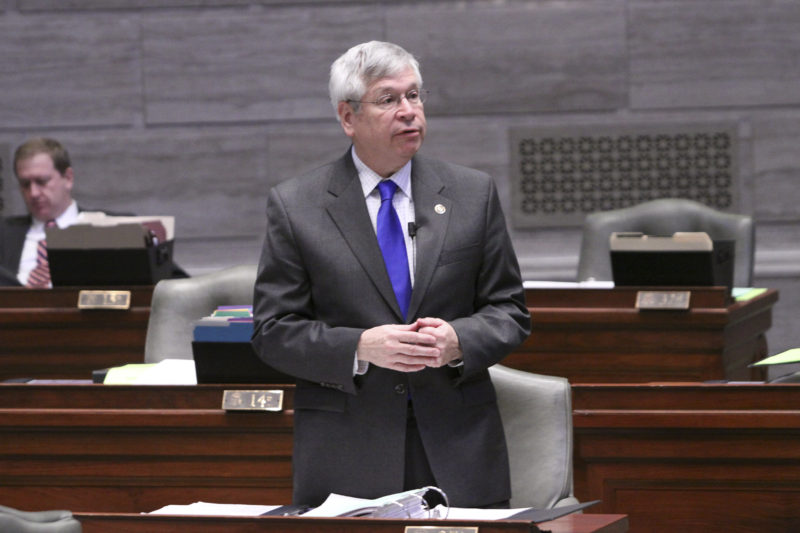JEFFERSON CITY, Mo. — Months after an appeals court rejected a Missouri natural gas company’s infrastructure system replacement surcharge (ISRS) process, lawmakers advanced legislation changing just how utilities handle such projects.
The Missouri Senate third read and passed legislation Monday afternoon in a 25-4 vote changing how gas corporations handle infrastructure replacement cases — including just what types of pipes and other structures are eligible to be replaced.
Specifically, SB 618 changes the language to stipulate replacement projects can cover cast iron, steel, or other facilities that “can no longer be installed under currently applicable safety standards, including any connected or associated facilities that, regardless of their material, age, or condition, are replaced as part of a qualifying replacement project in a manner that adds no incremental cost to a project compared to tying into or reusing existing facilities.” Previously, it just covered those that are “worn out or are in deteriorated condition.”
The legislation, championed by Republican state Sen. Wayne Wallingford, requires gas corporations to develop a pre-qualification plan for contractors participating in competitive bidding to install ISRS-eligible projects and file it with the Public Service Commission (PSC).
An ISRS appears on most natural gas customers’ bills to offset what companies spend to replace pipeline systems — often to keep in compliance with local, state, or federal regulations — after a rate case. An ISRS is regulated by the PSC.
Wallingford said the legislation was a direct response to the Western District Court of Appeals’ decision in a Spire case late last year. In November, the court remanded a prior PSC decision related to Spire’s ISRS. Whether some of the replaced pipes were actually “worn out or deteriorated” had been questioned during the case.
The decision noted Spire’s replacement program “replaces or retires” cast iron, steel, and plastic pipes. Cast iron pipes have been deemed unsafe because of graphitization — a degradation process that weakens metals and allows for leaks — and steel pipes can quickly erode. And following a 2003 decision by the General Assembly, Spire had accelerated that process with what officials said was an investment of up to $300 million.
Larry Pleus, the natural gas company’s director of government affairs, previously told The Missouri Times Spire was about two-thirds of the way through a 25-year accelerated process but was in limbo following the court decision.
“This bill will address an emerging national and local safety-related issue with aging natural gas pipes prone to leak,” Wallingford told The Missouri Times after the bill was perfected Tuesday. “This bill will also reduce the regulatory cost of what would otherwise result in more frequent rate proceedings.”
The perfection process took some time earlier this month, with state Sen. Jill Schupp listing concerns she had about the potential impact on consumers. She was able to get an amendment adopted that sunsets the bill after nine years. It also requires gas companies to refund customers should a court find an ISRS to contain “illegal and inappropriate charges.”
Democratic state Sen. Scott Sifton, too, attached an amendment requiring gas corporations regulated by the PSC to submit a plan regarding its use of renewable sources.
“The hope and the intent is to push those utilities in that direction … in an effort to be more ecologically conscientious,” Sifton said.
Spire officials have said the company plans to appeal the court’s decision — but were not hopeful a higher court would intervene. Pleus said Spire has about 1,000 employees in Missouri — in addition to hundreds of contractors in the Kansas City area — whose jobs are dedicated to the accelerated replacement of those pipes. And those workers are concerned about their futures with the company, he said.

Kaitlyn Schallhorn was the editor in chief of The Missouri Times from 2020-2022. She joined the newspaper in early 2019 after working as a reporter for Fox News in New York City.
Throughout her career, Kaitlyn has covered political campaigns across the U.S., including the 2016 presidential election, and humanitarian aid efforts in Africa and the Middle East.
She is a native of Missouri who studied journalism at Winthrop University in South Carolina. She is also an alumna of the National Journalism Center in Washington, D.C.
Contact Kaitlyn at kaitlyn@themissouritimes.com.














